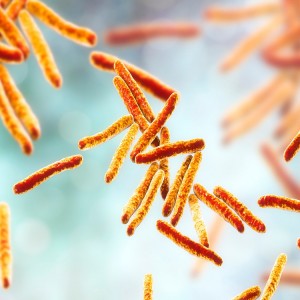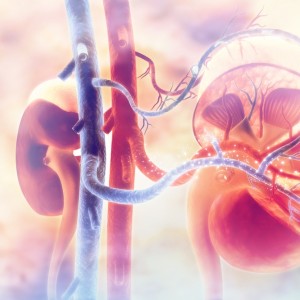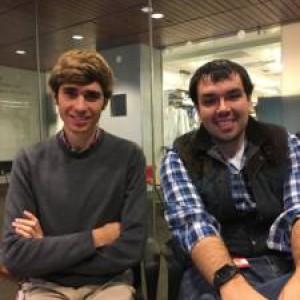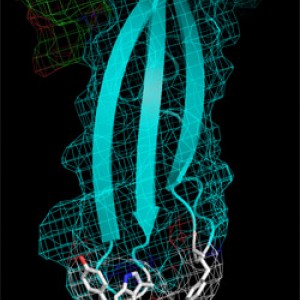Integration Stories
From seed grant funding to serendipitous introductions during symposium events, the Academic Integration initiative is yielding exciting intercampus collaborations with tangible outcomes. Highlighted by these Integration Stories, learn how investigators took advantage of various collaboration opportunities to advance their research discoveries.

Uncovering how tuberculosis transmits, $15.5 million, five-year grant from National Institutes of Health
Researchers: Kyu Rhee, associate professor of medicine and of microbiology and immunology at Weill Cornell Medicine (lead PI); Andrew Clark, professor of population genetics in the College of Arts and Sciences; Carl Nathan, chair of the Department of Microbiology and Immunology at Weill Cornell Medicine; Daniel Fitzgerald, director of the Center for Global Health at Weill Cornell Medicine; and Martin Wells, professor of statistical sciences in the School of Industrial and Labor Relations.
This team will investigate the biology of how the tuberculosis bacteria survives and transmits infection through the air.
Prior to the arrival of COVID-19, tuberculosis (Tb) ranked as the leading cause of death from an infectious disease. Unlike…

The nuts and bolts of copying DNA, $12 million, five-year grant from the National Institute of General Medical Science
Researchers: John Lis, professor of molecular biology and genetics in the College of Agriculture and Life Sciences (lead PI); Steven Josefowicz, assistant professor of pathology and laboratory medicine at Weill Cornell Medicine; Effie Apostolou, associate professor of molecular biology in medicine at Weill Cornell Medicine; Haiyuan Yu, professor of biological statistics and computational biology in CALS; and Abdullah Ozer, a research associate in Lis’ lab.
A better, more complete understanding of the transcription cycle – where DNA is copied into RNA, which is translated into proteins – and its regulation could lead to new targets for therapies for cancer, neurological and developmental disorders, autoimmune, metabolic and cardiovascular diseases related to…

Retroviruses, HIV, Epstein Barr Virus and B cell lymphoma, $6 million, five-year grant from the National Cancer Institute
Researchers: Douglas Nixon (contact PI); Cedric Feschotte; Ethel Cesarman, professor of pathology and laboratory medicine and an expert on herpes viruses at Weill Cornell Medicine; and Fabio Leal, a researcher at the Brazilian National Cancer Institute, who will provide samples from lymphoma patients, with and without HIV.
People living with HIV have higher incidences of B cell lymphomas compared with the general population. Similarly, there is evidence that Epstein Barr Virus also promotes these lymphomas.
Endogenous retroviruses, which make up around 8% of the human genome, may answer this riddle. Researchers believe these viruses infected germ (egg and sperm) cells millions of years ago, were passed from mother to…

Intercampus Collaboration Leads to $3.65M Grant Awarded
An intercampus research team at Weill Cornell Medicine and Cornell’s Ithaca campus has been awarded a five-year, $3.65 million grant from the National Institutes of Health (NIH) to develop a quick, inexpensive method for accurately diagnosing urinary tract infections in kidney transplant patients by carrying out molecular profiling of cell-free DNA in urine.
The team is headed by Dr. Iwijn De Vlaminck, an assistant professor at the Meinig School of Biomedical Engineering at Cornell University, along with Dr. Christopher Mason, an associate professor of physiology and biophysics and co-director of the WorldQuant Initiative for Quantitative Prediction at Weill Cornell Medicine, and Dr. Darshana Dadhania, an associate professor of medicine at Weill Cornell Medicine…

The Power of Collaboration
“I was able to find the missing pieces to my project and the expertise that I needed.”
Collaborations between the Englander Institute for Precision Medicine (EIPM), Cornell University in Ithaca, and Cornell Tech are important to the future of precision medicine. To highlight the intellectual rewards of collaboration, we are pleased to introduce two young Ph.D. students from Cornell University who are spending significant time at the EIPM in New York City working on cutting-edge research projects.
Andrea De Micheli (left) is a visiting Ph.D. student from the laboratory of Dr. Benjamin Cosgrove at Cornell University in Ithaca. Matthew Mosquera is a visiting Ph.D. student in Dr. Ankur Singh’s lab at the Schools of Biomedical…

Intercampus Collaboration Yields a Successful Multi-PI R01
Many viruses are cloaked with an envelope derived from the host cell. To deliver the genome of the virus into the cell, viruses encode dedicated glycoproteins (fusion proteins) that are embedded in the envelope and which mediate the membrane fusion process. These fusion proteins come in three basic classes, with “class I” being found in such important viruses as influenza, HIV and paramyxoviruses. In these cases, it is well known that during virus entry a critical peptide is flipped out of the glycoprotein following proteolytic cleavage—to produce a so-called “external” fusion peptide. However, within class I there are a subset of glycoproteins that have “internal” fusion peptides that are much less well understood. Such viruses include some of great biomedical importance: SARS-…
